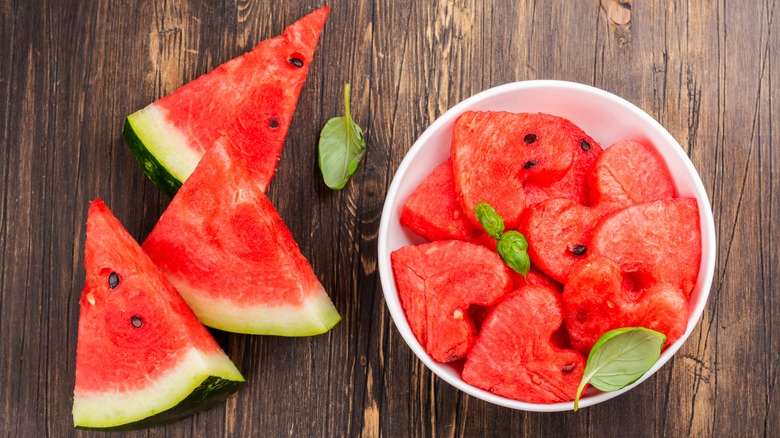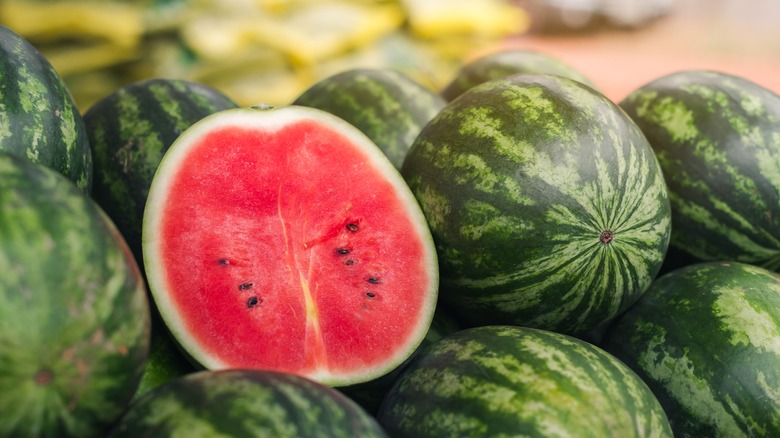Are Watermelon Seeds Safe To Eat?
While the autumn season doesn't exactly bring to mind eating slices of watermelon the same way summer does, a slice of fresh, cold, and juicy watermelon is always a healthy way to stay refreshed during any type of weather. But no matter when you enjoy watermelon, there's always one minor problem that always comes with it: the seeds. Those hard black seeds always get in the way of the juicy, sweet red flesh, don't they?
For as long as watermelon has been around, people have always tried to deal with this common annoyance. The first seedless watermelon, for example, debuted around the world in 1950, thanks to the combined work of Dr. C.Y. Wang and Dr. H. Hikara (via World Scientific). Some people, such as members of Seed Savers, save the seeds from the watermelon and plant them to grow their own watermelon. Others like to see how far they can spit watermelon seeds, considering it as part of the age-old ritual of eating fresh watermelon.
But what would happen if you accidentally ate a seed? You've probably heard of the old urban legend that, should you eat a watermelon seed, one would grow in your stomach (something that RedOrbit assures is nothing but total fiction, as if a seed could survive the inside of your stomach to begin with). But just what exactly would happen to you and what would be the side effects, if any at all?
Watermelon seeds can have some health benefits
According to some sources, not only would you most likely be perfectly fine after eating watermelon seeds, but some variations of watermelon seeds may actually offer some health benefits.
Allrecipes indicates that eating a white seed is very easy to do considering the seed's soft texture, but the harder black seeds are much more difficult to swallow. Ultimately, neither actually present any legitimate health hazard. In fact, you could even roast the watermelon seeds the same way you roast pumpkin seeds. To eat the watermelon seeds, all you'd have to do is crack the shells open and eat the seeds inside just as you would sunflower seeds.
LiveStrong also reports that consuming watermelon seeds, or watermelon seeds that have been prepared a certain way, can provide a variety of health benefits. According to LiveStrong, a cup of dried watermelon seeds can give 87% of the recommended daily dose of manganese, which helps support digestion, the immune system, and development. Watermelon seeds can also contribute to skin health, heart health, and weight loss.
While eating watermelon seeds straight from the melon may not sound so appealing, when prepared correctly, they can be a harmless, healthy, and tasty snack to accompany an already delicious fruit.

